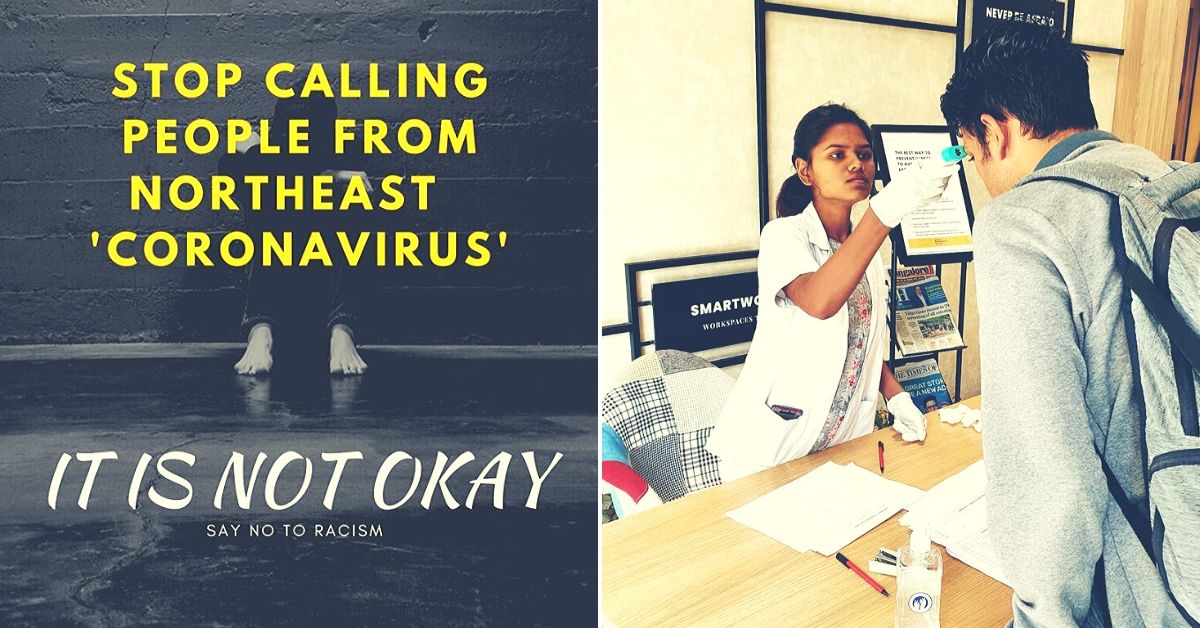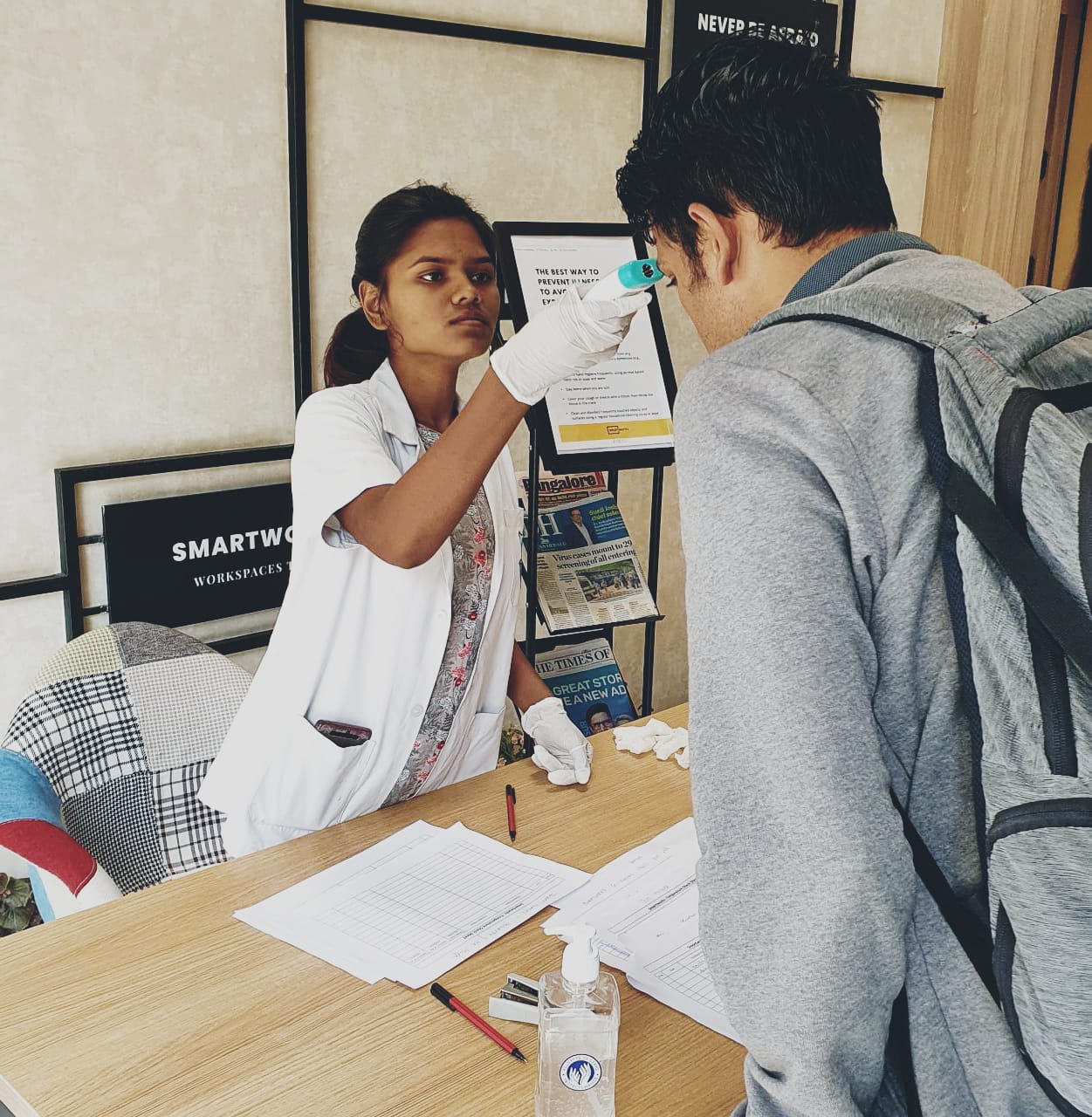Opinion: Stop Calling People From the Northeast ‘Coronavirus’. It’s Unacceptable.
While viruses do not discriminate between hosts depending on race, nationality or ethnicity, it’s evident that misinformation and stigma do. Since like COVID-19 coronavirus does not discriminate neither should we.

In times of a rapidly growing global public health emergency, it’s easy to panic. Thanks to the new Coronavirus (COVID-19) pandemic, people are forced to stock up on supplies, avoid as much physical contact with the outside world as possible and take aggressive steps to ensure better standards of hygiene. While the medical community and civilian administrations are battling COVID-19, there is unfortunately another virus that we as a society need to address.
That virus is a dangerous cocktail of racism and xenophobia.
Over the past week, I have read and watched multiple testimonies of students from Northeast India who have been derided as receptacles of COVID-19 and blatantly labelled as ‘Chinese’.
While medical experts are still trying to trace the outbreak of COVID-19 back to its source, the overall commentary suggests that the virus may have emerged from a wet market in Wuhan, China.
As a zoonotic disease (they spread to people from animals), some experts suspect that bats were the original host of the virus which first wreaked havoc in China. Today, it’s a global pandemic.
What does all this have to do with racist and xenophobic attacks on people from the Northeast?
One, citizens from the Northeast working across different parts of India are regularly subjected to racist slurs like ‘Chinese’, ‘C***ki’, ‘Nepali’ and often have their nationality questioned. Two, there is also a dangerous perception among many in the mainland that people from the Northeast consume ‘filthy and impure food’.
With the spread of the new coronavirus, the dangerous stereotype of northeasterners as ‘barbaric’ eaters of snakes, dogs, and frogs has gotten further prominence, particularly on social media. This usually translates into phrases like “C***ki log toh kuch bhi khate hain, unse dur raho” (These folks with Mongoloid features will eat anything and it’s best to stay away from them).
“There is definitely a mainland India narrative that considers food habits of people from northeast as ‘filthy’. It has to do with the way the narrative of Northeast has been constructed over the decades and a categorical ‘otherisation’ with common references of northeastern people as barbaric ‘junglis‘ still living in forests. Stereotypes like Chinese looking people, having food habits like those of the Chinese, eating dogs and snakes is commonplace. The recent cry for help by students of northeast in Punjab and Delhi on the racist attacks they have faced in the midst of the COVID-19 outbreak perfectly exemplifies this fact. It is the way the narrative of ‘pure food’ has been shaped in the mainland over the years, where only some foods are considered permissible to eat and the rest not,” say researchers Minakshi Bujarbaruah and Rituparna Kaushik Bhattacharya, speaking to The Better India.
As a consequence of the xenophobia attached to food practices from the region, many migrant northeasterners are often rejected rented accommodation. This leads to the ghettoisation of the community, where culinary choices determine where one can find accommodation.
In Nicholas Kharkingor’s brilliant film ‘Axone’, two friends living in the Humayunpur area of South Delhi decide to surprise their friend at a her wedding with a dish of pork cooked with axone/akhuni, a fermented soya bean paste used to flavour dishes which has a rather pungent aroma. What ensues is a series of comic-tragic misadventures that includes clashing with their neighbours and landlords over their right to eat whatever they want.
https://www.youtube.com/watch?v=qjjSDKFPKvk
Since the first major outbreak was reported in China and the virus is zoonotic, the casual conclusion many mainland Indians draw is that those with Mongoloid features are somehow carriers of this disease even though the Northeast hasn’t reported a single case.
COVID-19 was first reported from Wuhan, China, which, at its core, is a geographic location. Having Mongoloid features does not make someone more susceptible to the virus or more contagious.
This isn’t very hard to understand.
“The current slurs directed towards people with Mongoloid features in India is no doubt a continuation of existing racism in India. I see it as a failure at a societal level, and the state to some extent. It majorly stems from the lack of awareness and a sense of cultural superiority or gap. Ignorance laced with prejudice finds ground in racism. The unknown hardly matters to people in the mainland. Instead, they turn to their biases to caricature the other, while ignoring the diverse character of each state in the Northeast,” says Richard Kamei, a doctoral candidate at the Tata Institute of Social Sciences in Mumbai, speaking to The Better India.

Minakshi and Rituparna, however, feel that there is something more fundamental at work here. “Food, by all means, is a political instrument to create or categorise a distinctive other. The callous use of the purity and impurity rhetoric to justify the extent of discrimination of certain communities based on their food choices without knowing the complex history and cultures of regions and communities is problematic. Takeaways from the Coronavirus outbreak for people of Chinese origin poke at similar narratives of food taboos and racism towards northeasterners in India,” they write for Youth Ki Awaaz.
While viruses do not discriminate between hosts depending on race, nationality or ethnicity, it’s evident that misinformation and stigma do. Since COVID-19 does not discriminate neither should we. What this discrimination does during an epidemic is create a sense of fear and hostility that hurts people from the Northeast. This sort of harassment during a time of heightened anxiety and fear can take a significant toll on their mental health.

“I am really unsure of what advice I must give to mainlanders as someone who is always at the receiving end of their outlook towards us. It is their burden and they must devise among themselves to address it. I can only point out how I feel,” says Richard.
So, what can mainland Indians do? Speak up, when you witness discrimination related to coronavirus, fall back on the facts of this epidemic and change the conversation. Make an effort to understand the myriad of different cultures and cuisines from the Northeast. Once this Coronavirus epidemic is over, try and engage with these communities in your own city.
5 ways you can call out racism related to the #coronavirus. pic.twitter.com/6Bw8532dWn
— Amnesty International (@amnesty) March 10, 2020
Remember, skin colour is not a symptom. Those who suffer racist and xenophobic taunts and are unfairly labeled as ‘infected’ offer a peek into the climate of fear we have created that could actually cause far more serious harm to society than COVID-19 itself.
Also Read: Coronavirus in India: When & How to Quarantine Yourself at Home for COVID-19
(Edited by Saiqua Sultan)
Like this story? Or have something to share? Write to us: [email protected], or connect with us on Facebook and Twitter.
If you found our stories insightful, informative, or even just enjoyable, we invite you to consider making a voluntary payment to support the work we do at The Better India. Your contribution helps us continue producing quality content that educates, inspires, and drives positive change.
Choose one of the payment options below for your contribution-
By paying for the stories you value, you directly contribute to sustaining our efforts focused on making a difference in the world. Together, let’s ensure that impactful stories continue to be told and shared, enriching lives and communities alike.
Thank you for your support. Here are some frequently asked questions you might find helpful to know why you are contributing?


This story made me
-
97
-
121
-
89
-
167











